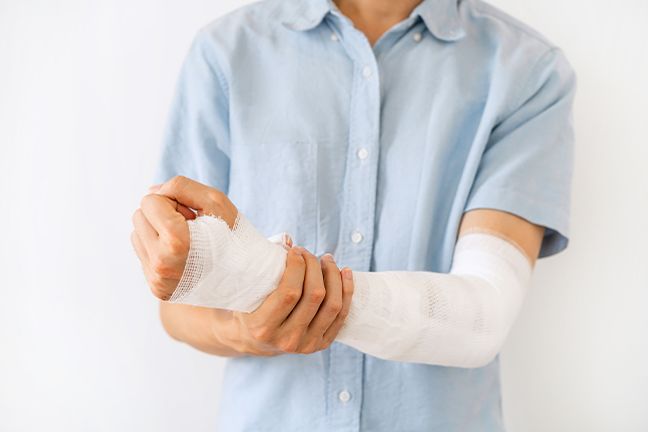In 1992, the Eighth Judicial District Court in Clark County, Nevada created the Court Annexed Arbitration (“Arbitration Program”) to provide a “simplified procedure for obtaining a prompt, economical and equitable resolution of certain civil cases.” [1] If utilized properly, the Arbitration Program can be a very cost effective means of resolving cases as it “allows litigants the opportunity to obtain relief outside the formal court setting.” [2] Subject to certain exceptions, all civil cases commenced in the district courts with a probable jury award value of $50,000 or less per plaintiff are subject to the program.[3]
Depending upon the particular facts of a case, a Plaintiff might want to exempt a matter from arbitration. One common (and obvious) reason a Plaintiff might seek exemption from the Arbitration Program is to avoid the $50,000 damage cap. It is important to remember the $50,000 represents a “probable jury award”[4], meaning there is some leeway in reaching a decision as to the value of each particular case. Additionally, in a typical personal injury case, this “probable jury award” includes past medical specials plus any general damages. As such, a party does not need $50,000 or more in past medical specials, and oftentimes a matter will be exempted when the past medicals specials are considerably less than $50,000 due to the probable value of general damages.
In order to exempt a case from the Arbitration Program, a party must file a Petition for Exemption from Arbitration.[5] Importantly, a party is not required to attach any evidence to the Petition such as the medical/billing records, as per statute the Petition only requires “a summary of facts which supports the party’s contentions.”[6] Additionally, Nevada is a “notice pleading state” meaning “courts liberally construe pleadings to place into issue matters which are fairly noticed to the adverse party.”[7]
For these reasons, Plaintiffs rarely attach medical and/or billing records to a Petition and this poses many challenges for a Defendant. Should the Defendant oppose the Petition if the alleged damages are clearly in excess of $50,000, thus incurring additional (and arguably unnecessary) attorney’s fees and cost? Or should the Defendant not file an opposition and simply allow the Petition to be granted? The latter approach might be more time and cost-effective up front but could present issues later in the life of the lawsuit.
Frequently a Plaintiff lists in their Petition a calculation of damages, but as discovery commences it becomes apparent some of the alleged medical costs contained in the Petition are clearly unrelated to the subject incident. For example a Plaintiff might have included in their Petition medical costs for visits to their primary care physician for general check-ups during the time they were treating for injuries from an incident. Other common examples are medical costs for visits to doctors related to unrelated issues such as diabetes, cardiac problems, asthma/allergies, and a host of other health issues which pre-date the subject incident and were not caused by and/or related to the subject incident.
For all of these reasons, a clever Plaintiff can take advantage of the lax rules regarding exemption from the Arbitration program by alleging medical costs which are clearly unrelated to the subject incident merely for the purpose of exempting the case from arbitration so they can circumvent the $50,0000 damage cap. Should this scenario occur, a Defendant has recourse to file a costly and time consuming motion seeking to remand the matter back to the Arbitration Program. If an opposition was not originally filed to the Petition, Plaintiff could potentially argue a subsequent pleading seeking to remand the case should be barred by the doctrine of judicial estoppel. Indeed, EDCR 2.20(e) states:
Failure of the opposing party to serve and file written opposition may be construed as an admission that the motion and/or joinder is meritorious and a consent to granting the same
Accordingly, if Defendant did not initially oppose the Petition, Plaintiff might have a basis per EDCR 2.20(e) to claim Defendant’s failure to oppose the Petition for Exemption from Arbitration was construed as consent that Plaintiff’s Petition-and by extension the alleged damages contained therein-was meritorious, and thus any subsequent attempts to oppose Plaintiff’s alleged damages should be barred under the doctrine of judicial estoppel.
One simple and cost-effective means of avoiding this potential argument by Plaintiff is to file a brief opposition to Plaintiff’s Petition for Exemption from Arbitration noting 1) Plaintiff has failed to include any exhibits to support the damage allegations and 2) requesting Plaintiff be required to supplement the Petition with such documentation. The authority behind this position is Nevada Arbitration Rule 5(D) which states “[t]he commissioner may require that a party submit additional facts supporting the party’s contentions”. [8]
At worst, Plaintiff’s Petition will be granted. However, since Defendant has taken a contrary position with regard to Plaintiff’s damages, that can be relied upon in the future in the event of any subsequent Motion and/or argument regarding Plaintiff’s damages. At best, Plaintiff may be required per NAR 5(D) to provide supporting documentation. In the event the alleged damages are in fact unrelated to the subject incident, this might impact the Commissioner’s decision whether to exempt the case from arbitration. Additionally a Defendant may have an opportunity to analyze the veracity of Plaintiff’s medical and billing records earlier than they normally would during the discovery process. This can be useful for case evaluation and possible settlement. For all of these reasons, if a Plaintiff files a Petition for Exemption from Arbitration which does not contain any exhibits or supporting documentation, it is good practice to prepare a brief opposition citing NAR 5(D) and requesting Plaintiff supplement the Petition with appropriate documentation.
[1] http://www.clarkcountycourts.us/departments/adr/arbitration/
[2] Id.
[3] Id.
[4] Id.
[5] Nevada Arbitration Rule 5
[6] Id.
[7] 2014 WL 2799591 (Nev.Dist.Ct.); See further Western States Const., Inc. v. Michoff, 108 Nev. 931 (1992); Chavez v. Robertson Steel Co., 94 Nev. 597, 599 (1978); Hay v. Hay, 100 Nev. 196, 198 (1984)
[8] NAR 5 (D)


 Author: Russell D. Christian
Author: Russell D. Christian
 Audish v. Macias Builds Upon the Foundation Started in Howell v. Hamilton Meats & Provision, Inc. By Affirming the Admissibility of Medicare...
Audish v. Macias Builds Upon the Foundation Started in Howell v. Hamilton Meats & Provision, Inc. By Affirming the Admissibility of Medicare...
 My New Year’s Resolutions at Work
My New Year’s Resolutions at Work
 Barking Up the Wrong Policy
Barking Up the Wrong Policy
 California Civil Procedure Code Section 998 – a Means to An End
California Civil Procedure Code Section 998 – a Means to An End
 May or Must: California and the Ninth Circuit Applies Grammar Rules for FMLA
May or Must: California and the Ninth Circuit Applies Grammar Rules for FMLA
 Par For the Course
Par For the Course
 Shining Light on Phantom Medical Bills–Lessons from Washington on Using Federal Hospital Price Transparency Rules to...
Shining Light on Phantom Medical Bills–Lessons from Washington on Using Federal Hospital Price Transparency Rules to...
 When Roads Diverge in the Wood: the Power of Risk in Building a Fulfilling Career and Stopping Nuclear Verdicts®
When Roads Diverge in the Wood: the Power of Risk in Building a Fulfilling Career and Stopping Nuclear Verdicts®
 Ask Atty: Scott Ruksakiati
Ask Atty: Scott Ruksakiati